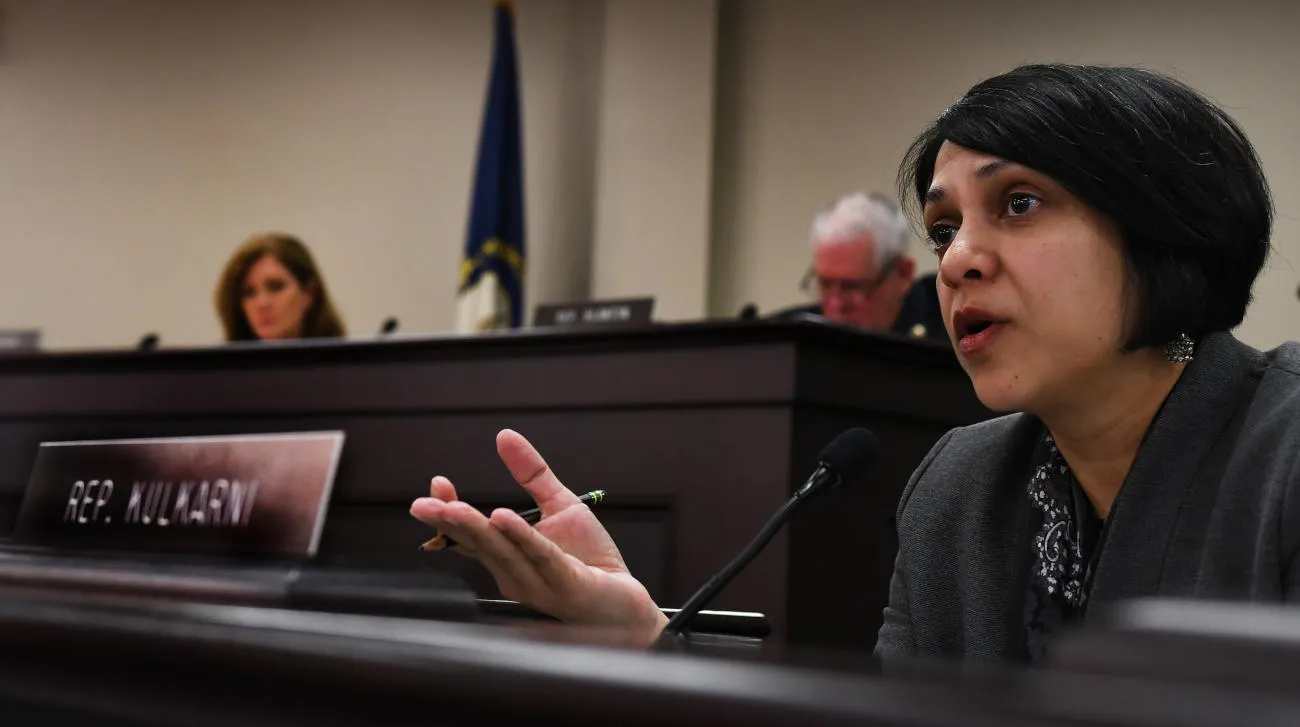Irony and absurdity always abound at the Kentucky General Assembly, but Wednesday’s Senate State and Government Committee meeting provided a particularly salient example:
A committee substitute to absolutely gut the public’s right to know was added secretly Tuesday night so the public wouldn’t know it was in the bill.
Luckily, a host of fiery and ideologically diverse speakers — including the Kentucky Press Association, Americans for Prosperity and a mom from Oldham County — let the committee members know the new committee substitute would exempt the governor, constitutional officers and public agency chiefs from Kentucky’s open records act.
The committee then voted to jettison the offending substitute from House Bill 509.
Catastrophe was averted, but the bill still poses serious concerns to government transparency. The bill requires all public employees and appointed officials to have a government email address with which to conduct public business.
That’s fine, certainly anyone doing public business should have an official email, and should be required to use it. But the bill excludes communications in the increasing number of others way we communicate, such as texting, Signal, or Facebook Messenger, to name a few.
Noted First Amendment attorney Michael Abate called it a “giant loophole” that public officials will quickly walk through.
If you want to know how serious this problem could be, look no further than Jefferson County Public Schools. Auditors investigating the transportation disaster at the start of school were surprised by the lack of internal emails about it. In the audit released this week, auditors wondered if email was not used.
“This possibility was perhaps supported by a JCPS leader who stated they felt encouraged to use cell phone texting instead of district email because it was perceived that texting was less subject to open records requirements,” the audit said.
Several committee members talked about personal privacy, as though their phones would be seized for an open records request, an absurd notion. There is indeed a tension between personal privacy and the public’s right to know, but too often, the public is the one getting shortchanged.
Republican Sen. Gex Williams (R-Verona) was the only Republican to vote no on HB 509 because he said it did not account for the various ways we communicate. He said he hoped the issue would continue to be worked on during the interim. The bill did not pass in the final hours of the General Assembly, but it’s unclear if lawmakers will take it up again during the two-day veto period.
This is a good hope and should be a bipartisan one. After all, transparency helps everyone better understand and shape the ways we govern ourselves.
This issue is about more than a squabble between lawmakers and the media, who arguably depend on open records to write the investigative stories that hold government accountable. The Kentucky Open Records Act, enacted 48 years ago, affects every Kentucky resident, taxpayer, renter, voter, student and family because they are all affected by the inner workings of our government and its affiliated bodies.
But there is a larger problem at hand that goes well beyond HB 509, and that’s the lack of transparency used throughout the session, but particularly at the end to obscure controversial legislation.
A report from the League of Women Voters found the Kentucky General Assembly increasingly relies on fast tracking or making last-minute changes to bills that get voted on before anyone in the public has a change to see or digest them. As the report said: “These processes violate a basic principle of our democracy: The people have a right to participate in decisions that affect them.”
As Abate pointed out, the way this bill was shaped through a secretive and shady process that did not give the public time to assess changes.
“This is a dangerous process, we’re playing with fire,” he said. “This process is broken and shouldn’t be used.”
Amen.
Continued attacks on Kentucky’s Open Records Act, along with shoddy, secretive legislative action, begs the question: What exactly are these lawmakers hiding and why? Kentuckians deserve much more from their elected public servants.
--30--
Written by the Herald-Leader editorial board. Cross-posted from the Herald-Leader.
Comments







